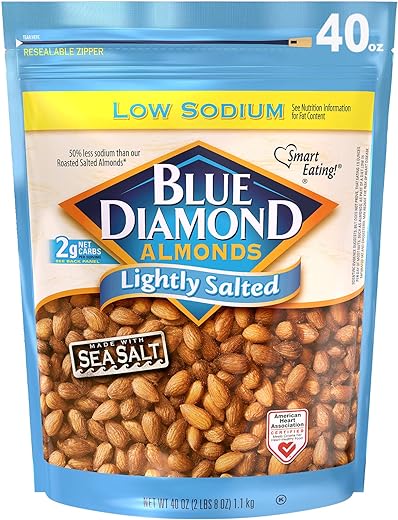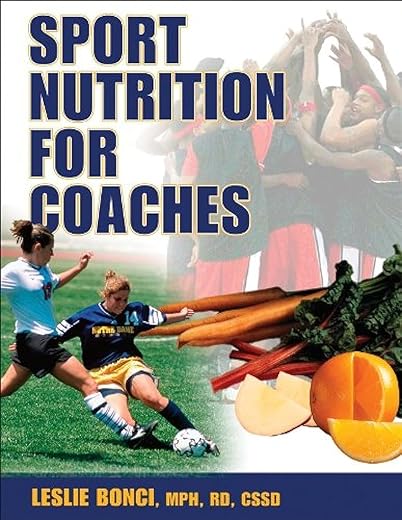Embarking on a journey toward a plant-based diet as an athlete can feel like stepping into uncharted territory, filled with curiosity and uncertainty. In this blog post, the intricate dance between athletes and plant-based diets will unfurl before your eyes, shedding light on the myriad benefits and compelling challenges that come with this nutrition path in the dynamic realm of sports. Embrace this exploration with an open heart and an eager mind, as you peek behind the curtain of this evolving and transformative relationship.
Discover the top plant-based diet books flying off the shelves!
Nutritional Advantages of Plant-Based Diets for Athletes
Athletes are constantly seeking ways to enhance their performance and optimize their physical well-being. One avenue that has gained significant attention in recent years is the adoption of plant-based diets. Not only do plant-based diets offer environmental benefits, but they also provide numerous nutritional advantages that can support athletes in reaching their peak potential.
Improved Recovery
- Increased Antioxidants: Plant-based diets are rich in antioxidants, such as vitamins C and E, which help reduce inflammation and oxidative stress in the body, crucial for fast recovery after intense training sessions.
- Anti-inflammatory Properties: Whole plant foods like fruits, vegetables, nuts, and seeds contain phytonutrients that possess anti-inflammatory properties, aiding in muscle recovery and reducing muscle soreness.
Enhanced Energy Levels
- Complex Carbohydrates: Plant-based diets are abundant in complex carbohydrates like whole grains, legumes, and starchy vegetables, providing a steady source of energy for athletes to sustain long periods of physical activity.
- Improved Endurance: By fueling the body with plant-based sources of energy, athletes can experience improved endurance levels, allowing them to perform at their best for longer durations.
Better Overall Health
- Heart Health: Plant-based diets have been linked to lower cholesterol levels and reduced risk of heart disease, promoting cardiovascular health among athletes.
- Weight Management: Due to the high fiber content in plant-based foods, athletes can manage their weight more effectively, supporting overall health and enhancing performance during training and competition.
In conclusion, plant-based diets offer a myriad of nutritional advantages for athletes that can positively impact their performance, recovery, and longevity in their sport. By incorporating more plant-based foods into their diets, athletes can take proactive steps towards improving their overall well-being while maximizing their athletic potential.
Challenges of Plant-based Diets in Athletic Performance
Athletes are constantly seeking ways to optimize their performance and recovery, and adopting a plant-based diet is increasingly being seen as a way to achieve these goals. However, transitioning to a plant-based diet poses unique challenges for athletes, particularly in meeting their protein requirements and ensuring adequate intake of essential nutrients.
Protein Requirements
Protein is a crucial component in supporting muscle recovery and growth in athletes. Many worry that a plant-based diet may not provide enough protein, but this can be easily addressed with strategic planning. Here are some ways athletes can still meet their protein needs on a plant-based diet:
- Plant-based Protein Sources: Legumes like lentils, chickpeas, and black beans are excellent sources of protein.
- Tofu and Tempeh: These plant-based alternatives to meat are rich in protein and can be incorporated into various dishes.
- Quinoa: A complete protein that can be used as a base for salads or bowls.
Additionally, combining different plant-based protein sources throughout the day ensures athletes receive all essential amino acids crucial for muscle repair and growth.
Nutrient Intake
Athletes must also pay close attention to their overall nutrient intake to support peak performance. Some key nutrients that may require special consideration when following a plant-based diet include:
- Iron: Crucial for oxygen transport and energy production; sources include lentils, tofu, and fortified cereals.
- Calcium: Essential for bone health and muscle function; fortified plant milks and leafy greens are good sources.
- Omega-3 Fatty Acids: Important for reducing inflammation and promoting cardiovascular health; chia seeds, flaxseeds, and walnuts are rich sources.
Athletes can optimize their plant-based diet by planning meals that include a variety of nutrient-dense foods to ensure they meet their macro and micronutrient needs for optimal performance.
In conclusion, transitioning to a plant-based diet as an athlete can be a fulfilling journey that offers a multitude of health benefits. By focusing on diverse plant-based protein sources and mindful nutrient intake, athletes can harness the power of plants to enhance their athletic performance and overall well-being.
Success Stories of Athletes on Plant-based Diets
As plant-based diets continue to gain popularity, more athletes are transitioning to this lifestyle and showing incredible results in their performance and recovery. Let’s delve into some inspiring success stories of athletes who have thrived on plant-based diets:
1. Plant-Powered Performers:
- Novak Djokovic
- The tennis superstar shifted to a plant-based diet, contributing to his enhanced agility and resistance during matches.
- Sonia O’Sullivan
- Irish former track and field athlete who credits her plant-based diet for increased energy levels and faster recovery times.
2. Fueling Success with Plants:
- Tia Blanco
- Professional surfer and vegan athlete whose adoption of a plant-based diet improved her endurance and overall well-being.
- David Carter
- Former NFL player known as the “300 Pound Vegan,” demonstrating that plant-based nutrition can support strength and optimal athletic performance.
3. Nutritional Benefits:
- Plant-based diets can support improved cardiovascular health, lower inflammation levels, and enhanced muscle recovery due to their rich array of nutrients.
- Athletes often experience faster recovery times, increased energy levels, and reduced muscle soreness when following a plant-based diet.
4. Making the Transition:
- Gradually incorporating more plant-based meals into your diet can help you adjust and discover new favorite foods.
- Explore plant-based protein sources such as lentils, chickpeas, tofu, and quinoa to meet your nutritional needs as an athlete.
5. Plant-Powered Performance:
- Many plant-based products, like Beyond Meat, Garden of Life protein powders, and No Cow energy bars, offer convenient and nutritious options for athletes looking to enhance their diet.
6. Take the Next Step:
Whether you’re an experienced athlete or just starting your fitness journey, considering a plant-based diet could unlock new levels of performance, recovery, and overall well-being. Embrace the power of plants and witness your athletic potential soar!
Tips for Athletes Considering a Plant-Based Diet
Are you an athlete curious about transitioning to a plant-based diet? Plant-based eating can offer numerous benefits for your performance, recovery, and overall health. Here are some practical tips and strategies to help you make a successful switch:
Benefits of a Plant-Based Diet for Athletes
- Improved Recovery: Plant-based diets are rich in antioxidants and anti-inflammatory compounds that can aid in faster recovery post-workout.
- Enhanced Cardiovascular Health: A diet focused on plant foods can reduce inflammation and improve blood flow, crucial for athletic performance.
- Sustainable Energy: Whole plant foods like fruits, vegetables, whole grains, and legumes provide a steady source of energy for athletic endeavors.
Meal Planning and Execution
- Balanced Macronutrients: Ensure you are obtaining enough protein, healthy fats, and carbohydrates through a variety of plant foods such as tofu, tempeh, quinoa, nuts, seeds, and lentils.
- Prep Ahead: Batch cooking grains, legumes, and veggies can save time during busy training periods.
- Snack Ready: Keep easily portable plant-based snacks like nut butter packs, fruit, protein bars, or veggies with hummus available for quick refueling.
Supplementation for Athletic Performance
- B12: Plant-based athletes should consider B12 supplementation for nerve function and energy levels.
- Plant-Based Proteins: Supplement with plant-based protein powders like pea or hemp to meet increased protein needs.
- Omega-3s: Incorporate sources of ALA like flaxseeds or algae-based DHA/EPA supplements for optimal brain health and inflammation moderation.
Working with Nutrition Professionals
- Registered Dietitian (RD): Consulting with an RD who specializes in sports nutrition can help tailor your plant-based diet to optimize performance.
- Sports Nutritionists: Work with a sports nutrition specialist who can provide meal plans and strategies to meet your unique athletic needs.
Making the switch to a plant-based diet as an athlete is both achievable and rewarding. By implementing these tips and strategies, you can fuel your body for success while benefiting from the health advantages of plant-based eating.
Embracing the Future: Thriving with Plant-powered Performance
As a critical step in maximizing performance and achieving long-term success, athletes should embrace the power of plant-based diets and seek professional guidance to personalize their nutritional journey. With strategic meal planning and expert support, athletes can harness the benefits of plant-based eating to elevate their game and propel their performance to new heights.
Frequently Asked Questions about Plant-Based Eating
Do plant-based diets impact recovery time and muscle growth for athletes?
Yes, plant-based diets can positively impact recovery time and muscle growth for athletes. Plant-based foods are rich in antioxidants, vitamins, and minerals which can help reduce inflammation and promote faster recovery after intense workouts. Additionally, sources of plant-based protein such as beans, lentils, tofu, and quinoa can provide athletes with the necessary nutrients to support muscle growth and repair. Many athletes have successfully incorporated plant-based diets into their training regimen and have seen improvements in their performance, recovery time, and muscle development.
What are the advantages of incorporating plant-based foods into an athlete’s diet?
Incorporating plant-based foods into an athlete’s diet can offer numerous benefits. Plant-based foods are rich in essential nutrients like vitamins, minerals, fiber, and antioxidants that can support overall health and performance. They can provide the body with sustained energy, aid in faster recovery, reduce inflammation, improve digestion, and promote a healthy weight.
Moreover, plant-based foods are typically lower in saturated fats and cholesterol, which can contribute to better heart health and reduced risk of certain chronic diseases. By diversifying an athlete’s diet with plant-based options like fruits, vegetables, whole grains, legumes, nuts, and seeds, they can enhance their nutrient intake and potentially improve their athletic performance in the long run.
How can athletes ensure they are getting enough nutrients like iron and B12 on a plant-based diet?
Athletes can ensure they are getting enough iron and B12 on a plant-based diet by incorporating a variety of nutrient-dense foods into their daily meals. Foods rich in iron such as lentils, chickpeas, tofu, spinach, and fortified cereals can help fulfill iron needs. To boost vitamin B12 intake, athletes can include fortified plant-based milk, nutritional yeast, fortified cereals, and supplements in their diet. It is essential to plan meals carefully and consider working with a registered dietitian to ensure optimal nutrient intake for peak athletic performance.
How do plant-based diets differ from traditional athlete diets?
Plant-based diets differ from traditional athlete diets in the sources of protein and nutrients they rely on. While traditional athlete diets often include significant amounts of animal-based proteins from sources such as meat, fish, and dairy, plant-based diets focus on obtaining protein from plant sources like beans, legumes, tofu, quinoa, and nuts.
Additionally, plant-based diets typically have higher levels of antioxidants, fiber, and micronutrients that can enhance overall health and recovery. On the other hand, traditional athlete diets might provide more easily accessible sources of certain nutrients like iron and Vitamin B12.
Overall, plant-based diets can be just as effective in supporting athletic performance with proper planning to ensure all nutritional needs are met. Emphasizing a variety of plant foods and possible supplementation can help athletes thrive on plant-based diets while achieving their performance goals.
Are there successful examples of top athletes thriving on a plant-based diet?
Yes, there are indeed many successful examples of top athletes thriving on a plant-based diet. Athletes such as tennis player Venus Williams, soccer star Lionel Messi, and Formula 1 champion Lewis Hamilton have all embraced plant-based diets and continue to achieve remarkable success in their respective sports. These athletes prove that with careful nutrition planning, it is absolutely possible to excel in top-level sports while following a plant-based diet. Their stories serve as inspiration for many others looking to adopt a more sustainable and cruelty-free way of eating while still performing at their best.
Are there specific plant-based foods that can enhance athletic performance?
Yes, there are specific plant-based foods that can enhance athletic performance. Foods high in complex carbohydrates such as whole grains, fruits, and vegetables can provide the energy needed for physical activity. Plant-based sources of protein like nuts, seeds, beans, and tofu can help repair and build muscle. Additionally, antioxidant-rich foods such as berries, leafy greens, and herbs can help reduce inflammation and promote faster recovery. Consuming a variety of nutrient-dense plant-based foods can support overall athletic performance and health.
Can athletes still meet their protein needs on a plant-based diet?
Yes, athletes can absolutely meet their protein needs on a plant-based diet! There are many plant-based sources of protein available such as beans, lentils, tofu, tempeh, quinoa, nuts, seeds, and even many vegetables. Plant-based athletes often combine different plant protein sources during the day to ensure they get all the essential amino acids necessary for muscle repair and growth. Plant-based diets can provide all the protein and nutrients needed for optimal athletic performance while offering additional health benefits like lower risk of chronic diseases and better recovery. With careful planning and a variety of plant sources, athletes can easily meet and even exceed their protein requirements on a plant-based diet.















![[0]FoodSaver FM2435 Vacuum Sealer Machine with Bonus Handheld Vacuum Sealer and Starter Kit, Safety Certified, Silver](https://adventistmarket.com/wp-content/uploads/2024/02/0foodsaverfm2435vacuumsealermachinewithbonushandheldvacuumsealer.jpg)


I wonder if the article could delve more into specific meal plans and recipes tailored towards athletes looking to switch to a plant-based diet.
I agree that plant-based diets can enhance athletic performance and promote overall health. It’s great to see this topic being discussed more widely.
This article provides great insight into the benefits of plant-based diets for athletes. I appreciate the references to scientific studies.
I would have liked to see some testimonials or case studies from athletes who have successfully transitioned to a plant-based diet and noticed improvements.
It would be interesting to explore the challenges athletes might face when adopting a plant-based diet, such as meeting vitamin and mineral needs. Overall, a thought-provoking article!
The section on plant-based protein sources was informative. It’s crucial for athletes to get adequate protein for muscle recovery and growth.
The environmental benefits of plant-based diets are significant and shouldn’t be overlooked. It’s a win-win for athletes and the planet.